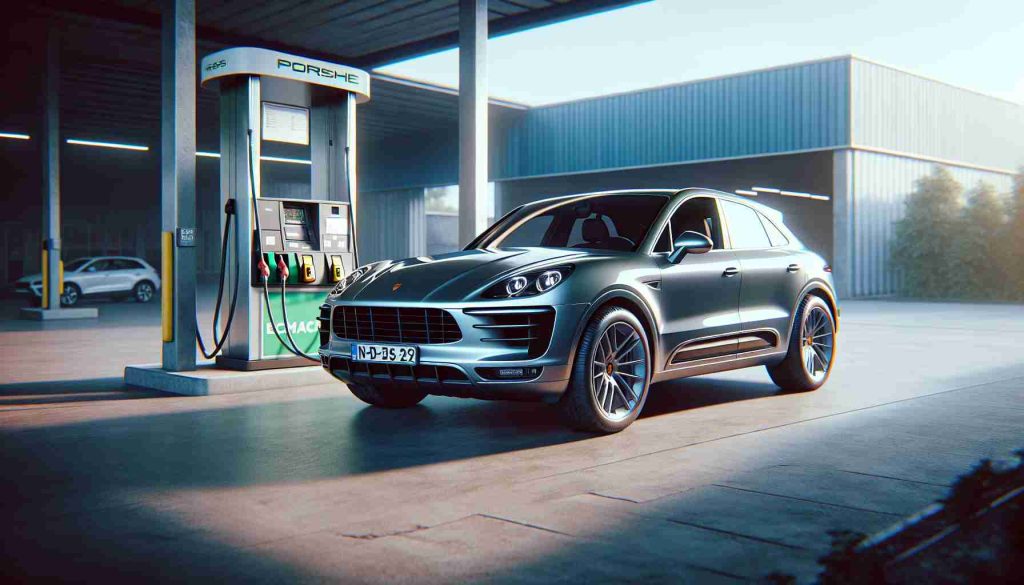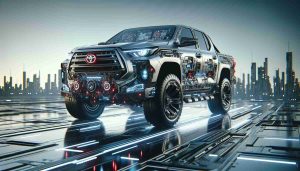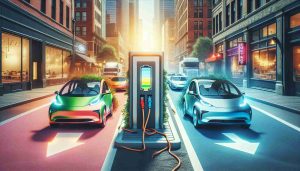Porsche’s Grand Reversal: Is the Macan Going Gas Again?
4 min read
The future of the Porsche Macan is under serious reconsideration. After a concerning decline in sales, the luxury automaker is contemplating a return to traditional combustion engines for its sought-after mid-size SUV.
Since its debut in July 2024, the all-electric Macan was expected to drive Porsche’s EV sales significantly. However, recent reports revealed a shocking seven percent global drop in Macan sales. This downturn coincided with a dramatic 50 percent plummet in Taycan deliveries, marking it as Porsche’s least successful model in 2024.
In light of these developments, Porsche is reassessing its stance on electric vehicles. The company’s leadership has expressed concerns about the viability of EV sales, prompting discussions on potentially integrating hybrid or traditional engine options for future models. The Macan’s platform is uniquely designed for electrification, making a quick switch to combustion power challenging.
With the original Macan no longer compliant with European regulations, Porsche is left with limited alternatives. They may develop an updated Macan using the new Premium Platform Combustion (PPC) found in the latest Audi Q5, or rework the existing EV to accommodate a hybrid system.
As the market reacts, Porsche’s ambitious electrification plans face hurdles, leaving car enthusiasts wondering about the Macan’s future direction amidst evolving consumer demands.
Implications of Porsche’s Future Direction: The Broader Landscape
The current reevaluation of the Porsche Macan’s future reflects more than simply a product strategy; it signifies a critical inflection point in the luxury automotive sector. As Porsche navigates its diminishing EV sales and reconsiders the viability of combustion engines, large-scale repercussions may ripple across societal norms and consumer behavior. The luxury market has long been associated with status and prestige, which are increasingly intertwined with sustainability concerns. The recent downturn may push consumers towards brands that better align their values with environmental sustainability, challenging luxury labels to adapt swiftly or risk erasure from a rapidly evolving marketplace.
Furthermore, the environmental ramifications of Porsche’s potential pivot back to traditional combustion technology are profound. A resurgence in gas-powered models could prolong reliance on fossil fuels, countering the push for decarbonization necessary to combat climate change. The transportation sector accounts for nearly 24% of global CO2 emissions, and each choice made by industry leaders affects broader environmental goals.
Future trends in automotive technology may thus hinge on consumer feedback. With growing interest in hybrid vehicles, Porsche’s option to adopt or enhance hybrid systems might serve as a crucial middle ground, potentially influencing the luxury market’s trajectory towards more eco-friendly alternatives. In the long run, companies like Porsche must carefully navigate these waters to maintain relevance while contributing positively to global sustainability efforts. As this scenario unfolds, it will be essential to monitor how consumer expectations evolve and how automotive leaders respond to them.
Is the Porsche Macan Shifting Back to Gasoline? Here’s What’s Happening!
The Future of the Porsche Macan: Navigating Sales Declines and Electric Challenges
Porsche is at a significant crossroads with its Macan model, as recent reports indicate an alarming seven percent decline in global Macan sales alongside a staggering 50 percent drop in Taycan deliveries, resulting in the Taycan becoming Porsche’s least successful model of the year. With these sobering figures, the automaker is contemplating a pivot back towards traditional combustion engine options for its popular mid-size SUV, which debuted as an all-electric vehicle in July 2024.
Current Trends and Insights
1. Sales Decline Analysis: The drop in Macan sales is particularly concerning, as the model was anticipated to bolster Porsche’s electric vehicle (EV) sales significantly. This downturn raises questions about consumer preferences amidst the increasing variety of electric vehicles available in the market.
2. Market Viability of EVs: Porsche’s leadership is reevaluating its commitment to EV sales, reflecting a broader industry trend where luxury automakers are reconsidering their electrification strategies depending on market reception. This could hint at a strategic shift that favors hybrid or traditional combustion engines.
3. Regulatory Challenges: The original Macan model has become non-compliant with European emissions regulations, compelling Porsche to examine feasible alternatives. This regulatory pressure underscores the complexities faced by automakers in transitioning to sustainable powertrains while maintaining compliance in various markets.
Potential Pathways
– Development of New Platforms: Porsche may leverage existing technology from its sister brand, Audi, to develop a new Macan. The Premium Platform Combustion (PPC) used in the Audi Q5 could serve as a technical foundation for a hybrid or combustion-driven version of the Macan.
– Hybrid System Adaptation: Another route being considered involves updating the existing electric Macan to integrate a hybrid system. This would allow Porsche to continue offering a performance-oriented vehicle while addressing consumer demand for flexibility in powertrains.
Pros and Cons of Returning to Combustion Engines
Pros:
– Potentially broadened consumer appeal in markets favoring traditional engines.
– Improved sales momentum against declining EV figures.
– Reduced risk of over-reliance on the evolving EV infrastructure.
Cons:
– Challenges in technology integration and platform adaptation.
– Possible backlash from EV enthusiasts and environmental advocates.
– Complications arising from regulatory compliance and emissions standards.
Comparisons and Market Response
As Porsche navigates these turbulent waters, the comparison between the Macan and its competitors is pivotal. Brands like Tesla and Rivian are solidifying their hold on the EV market, and Porsche must decide swiftly to either innovate within the all-electric domain or go back to hybrid solutions.
Looking Ahead: Predictions and Future Innovations
Industry experts predict that the future landscape for the Macan will require a blend of agility and innovation. As consumer preferences shift and regulations tighten, the ability to pivot between electrification and combustion may determine the Macan’s success.
With this ongoing transition, Porsche enthusiasts and market analysts will be keenly monitoring the automaker’s next steps, gauging whether it will lead the charge in electric luxury vehicles or revisit its roots in traditional combustion engines.
As the automotive world watches, stay updated on further developments regarding Porsche’s strategic maneuvers in the evolving marketplace.



